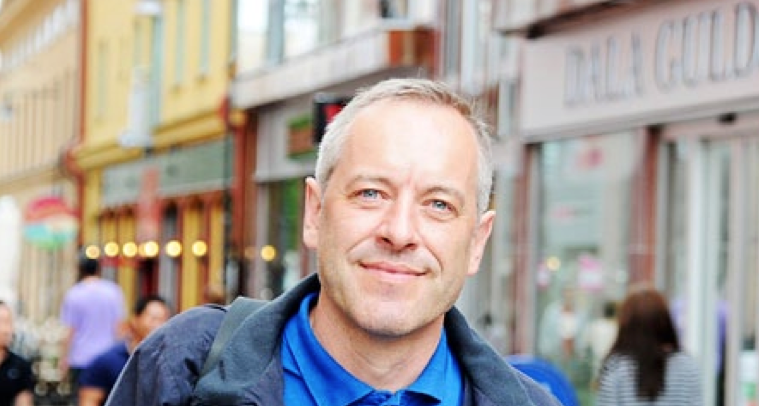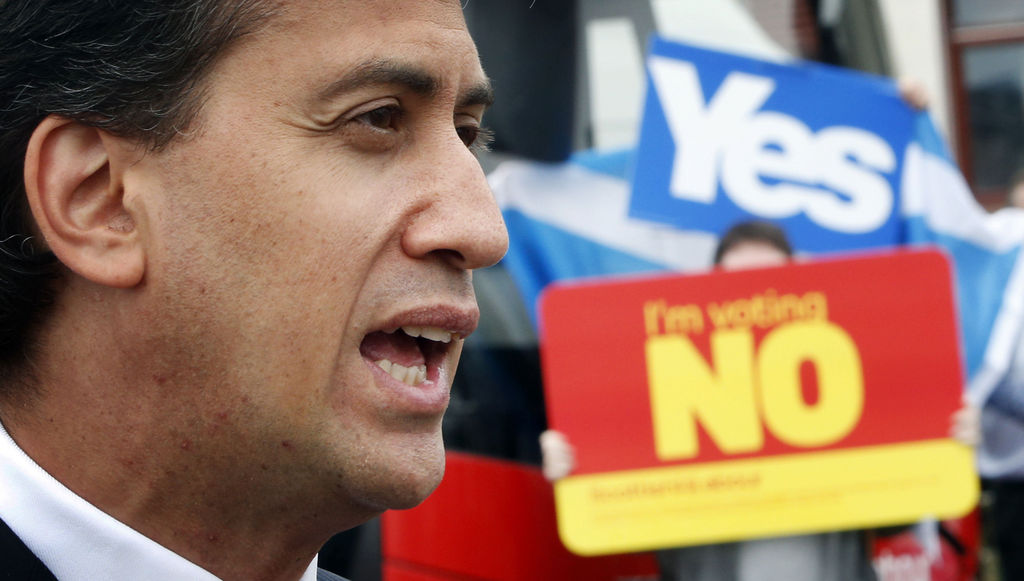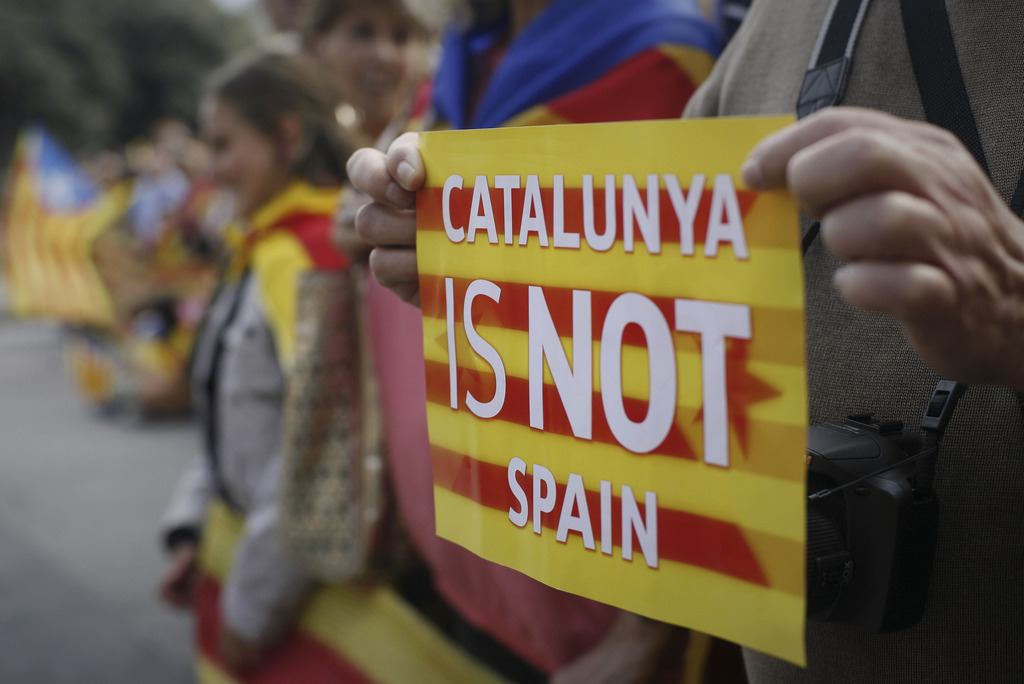The two tales of ‘Scotalonia’
Two old European nations are about to decide their statehood. While the Scots are addressing the issues linked to independence, the Catalans have to struggle for their right to vote on independence, writes Bruno Kaufmann, editor-in-chief of people2power.info.

It happened in the dying minutes of the last televised Scottish independence debate on September 3: actress and pro-independence activist Elaine Smith suddenly burst out laughing.
“What did you say?”, she asked her opponent, Kezia Dugdale, Labour’s Member of the Scottish Parliament. “Did you say that we should have a national conversation on Scotland’s future?”, asked Smith incredulously.
Seconds earlier, Dugdale had proposed that after the September 18 referendum the people of Scotland should start to discuss the “real problems again, like social welfare, health and infrastructure”.
This was indeed a helpless attempt by Scottish independence opponents to deny the fact that almost five million people in a country stretching over 80,000 square kilometers have been involved in a ‘national conversation’ for years, if not decades.
With the historic popular vote coming up on September 18, thousands of documents and studies have been published on the pros and cons of leaving the United Kingdom. Hundreds of thousands of debates and conversations have been held. And almost everybody agrees that this referendum campaign has been a good example for other countries of how to organise a free and fair deliberation and decision-making process. To me this is a positive and encouraging surprise.
But there is another story to tell in Europe – and in the imaginary country of Scotalonia’. It is the story of the people of Catalonia.

While the campaign tries to underline the normality of this popular independence vote, some people , like Mariano Rajoy, Spain’s prime minister, do not appreciate this kind of normality.
The leader of the conservative People’s party has described the independence referendum as ”illegal’ and he is not alone. On April 8, a majority of the members of the Spanish parliament – including the Socialist opposition – voted against an agreement for a decisive popular vote in Catalonia, leaving the region of 7.5 million residents with the only one option left – to call for a consultative vote.
The Catalan parliament is currently finalising its work to establish a new legislation for a consultative vote. Catalan political parties are planning a massive public meeting on September 11, Catalonia’s national day of celebrations – urging millions of citizens to gather in the capital Barcelona. But will anybody listen in Madrid? To me this is a negative and discouraging surprise.
And yet the two tales of Scotalonia offer interesting insights into the options and limits of modern direct democracy in Europe. They tell us that history matters – a lot.
While there appear to be many similarities between Catalonia’s moves to autonomy in 1979 and the referendums for devolution in 1997 (Scotland) and 2006 (Catalonia), the recent monarchic reflexes have been very different in the north and south of Europe.
The UK has been a stable parliamentary monarchy for centuries, while Spain was run by a dictator until the mid-1970s. Beyond Scotalonia, this major difference also became apparent in the way they dealt with violent secessionist movements, such as in Northern Ireland (finally settled by a referendum in 1998) and the Basque Country (where a ceasefire has just been reached).
It is obvious that stable parliamentary rule and experiences with successful settlements of violent conflicts offer a more welcoming context to popular votes than open wounds from dictatorship and unresolved civil wars.
However, history is not limited to the past. It is written today. With the upcoming independence referendums the Scots and (probably also) the Catalans are about to write such modern history – for the benefit of people power and many similar conversations ahead.
Opinion series
swissinfo.ch publishes op-ed articles by contributors writing on a wide range of topics – Swiss issues or those that impact Switzerland. Over time, the selection of articles will present a diversity of opinions designed to enrich the debate on the issues discussed.

In compliance with the JTI standards
More: SWI swissinfo.ch certified by the Journalism Trust Initiative









You can find an overview of ongoing debates with our journalists here . Please join us!
If you want to start a conversation about a topic raised in this article or want to report factual errors, email us at english@swissinfo.ch.